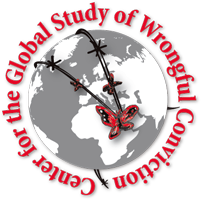One of the most intriguing wrongful conviction cases I uncovered in France is called, L’affaire d’Outreau (this link is to the original French article but can be translated online). This is a 2004 case of alleged sexual abuse of children producing 17 indictments, 4 convictions, and 12 acquittals. The case was built around testimony of one of the co-defendants who lied about the involvement of the others. Like so many of the cases investigated by innocence organizations in the United States, there was no physical evidence, only the word of an accuser.
Between January 10 and April 12 of 2006, a Parliamentary investigation was undertaken to identify those factors leading to the wrongful convictions. The commission members heard from 221 people for more than 200 hours of testimony. Witnesses included alleged victims, defendants, prosecutors, police officers, judges, sociologists, psychologists, linguists, and others. Questions focusing on oral testimony sought insight into the following: “How to listen and transcribe depositions, interrogations and confrontations,” “What form of orality is more conducive to the emergence of the truth?,” “What is the validity of orality in the construction of the judicial process?”
It is important to note that, largely in response to public outcry over the Outreau convictions, the French Parliament saw fit to establish an investigatory commission to review the entire investigation and trial to determine where fault should lie, and how procedural improvements could be made. While US legal scholars have conducted postmortem analysis of wrongful conviction cases to determine their causes, nothing similar to the French Parliamentary commission investigating Outreau has occurred in the US. This is precisely the kind of transnational sharing of information and experiences that can prove invaluable and inspirational to the human rights movement seeking justice for the wrongly convicted. For example, Barry Scheck, Peter Neufeld, and I have each on different occasions argued for the creation of a federal level review body with the mandate to investigate the causes of wrongful convictions. I have referred to such a body as the National Safe Conviction Board (NSCB). This NSCB would have full subpoena authority and would serve to generate a set of national priorities based on its investigations (see Robert Schehr. 2010. “A View From the United States,” in M. Naughton (ed.), The Criminal Cases Review Commission: Hope for the Innocent? pp. 205-218.). Regardless of what it’s called, the purpose of a federal commission authorized to hold hearings to deconstruct the causes of wrongful convictions, and to publish its findings and recommendations for investigation and due process remedies, is something that I strongly believe we should lobby for in the United States.
The French Parliamentary commission appears to have operated much like a truth in reconciliation that privileges parrhesia – the ability to speak freely, candidly, with a degree of risk. Some of the statements made by the exonerees are compelling:
Sandrine Lavier: “We were never heard. We told them we were innocent, we were talking to a wall.” When asked “Who was this wall?” “Investigators, Judge Burgaud, the prosecutor, the juvenile judge, the Board of Appeal, all.”
Frank Lavier: “To prove our innocence, it’s like you say it’s windy but you do not see it. There is a difference: one is innocent, but we cannot prove it to you. The wind is there but does not see.”
The Commission members admitted the difficulty of attempting to determine innocence and guilt when, as in this case, there is no physical evidence.
The takeaway from reading about the Outreau affair is that, at least in this one case, the French appear to share much in common with those of us operating in adversarial systems. Perhaps the more compelling lesson for those of us operating within the United States is that we can follow in France’s footsteps by creating a National Safe Conviction Board to conduct postmortem review of exoneration cases.


















Very intresting Rob. Thanks for sharing. I’m going to be meeting with French scholars next week, and will share these posts with them before I head over. We all have much to learn from each other, as you say….
Safe travel.
I am tempted to ask you to kindly give a Platonic hug to a consenting adult French national (I assume hugs are in), but Nancy does not share my enthusiasm for international camaraderie ☺.
She does share my best wishes for a safe to/at/from environment.